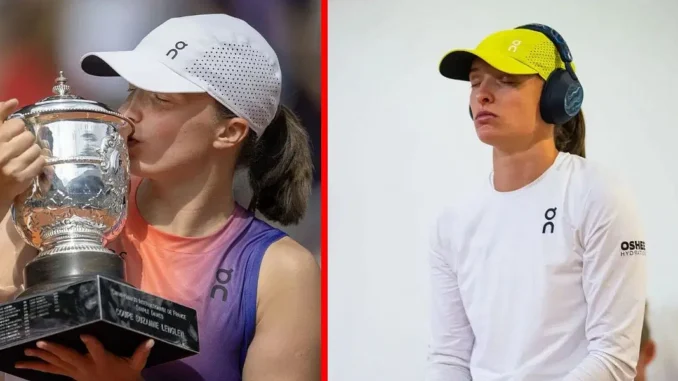
The upcoming French Open is generating considerable discussion, particularly around Iga Swiatek’s chances of defending her title. Despite some fluctuations in form leading up to the tournament, Swiatek’s past dominance on the Parisian clay has made her a central figure in the pre-tournament analysis. Amelie Mauresmo, the French Open director, has offered her perspective on Swiatek’s prospects, providing valuable insights into the factors that could influence the Polish player’s performance.
Swiatek’s journey to the top of the women’s game has been significantly shaped by her success at the French Open. Her ability to navigate the challenges of clay courts, with her powerful groundstrokes, exceptional movement, and strategic acumen, has earned her the moniker “Queen of Clay.” However, the world of tennis is dynamic, and recent results have introduced an element of uncertainty surrounding her title defense.
Mauresmo, a former Grand Slam champion herself, acknowledges the complexities of Swiatek’s current situation. While recognizing the undeniable talent and clay-court prowess that Swiatek possesses, Mauresmo also emphasizes the importance of mental fortitude and early momentum in the tournament. “I think that she can still have a chance,” Mauresmo stated, reflecting a belief in Swiatek’s potential to overcome recent challenges. This assessment is not a mere expression of hope but rather a calculated observation based on Swiatek’s proven capabilities.
Mauresmo’s analysis delves into the psychological aspects of competing at the highest level. She highlights the significance of the initial matches in shaping a player’s confidence and rhythm. “I think the beginning of the tournament will be key, definitely, to have this confidence going again,” Mauresmo explained. In a tournament as demanding as the French Open, where pressure and expectations are immense, a strong start can be crucial in establishing a sense of control and belief.
The early stages of the tournament, as Mauresmo points out, provide an opportunity for players to find their footing and build momentum. “You need these first few matches, one, two, three, to get the rhythm going, get the confidence a little bit higher, getting it up a little bit,” she elaborated. This process of gaining confidence is particularly important for a player like Swiatek, who has experienced periods of both triumph and adversity.
Mauresmo’s perspective also underscores the unique challenge that Swiatek presents to her opponents when she is at her best. “But Iga on this court is always dangerous,” Mauresmo asserted. “She’s always going to be a problem for any player she’s going to face.” This recognition of Swiatek’s inherent threat on clay serves as a reminder of her capacity to dominate matches and overcome even the toughest competition.
However, Mauresmo also acknowledges the impact of recent form and the potential vulnerability it may create. “Now, the fact that she’s coming here with confidence being pretty low is probably something new for her,” Mauresmo observed. This awareness of Swiatek’s current mental state adds another layer of complexity to the analysis. It raises the question of how Swiatek will respond to this unfamiliar situation and whether she can rediscover the confidence that has been a hallmark of her previous successes.
In essence, Mauresmo’s stance on Swiatek’s title defense chances is nuanced and insightful. She acknowledges both the inherent strengths that make Swiatek a formidable competitor on clay and the potential challenges posed by recent fluctuations in form. Her emphasis on the importance of early momentum and mental resilience highlights the multifaceted nature of competing at the highest levels of professional tennis. As the French Open unfolds, the tennis world will be watching closely to see how Swiatek navigates these factors and whether she can once again rise to the occasion on her favored surface.
Leave a Reply